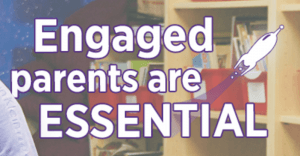Connecting with Parents
In the Special Educational Needs code of practice (SEN Code) it states as a general princi- ple that ‘Parents have a vital role to play in supporting their children’s education’ (DFES, 2001, 7) ‘they have unique strengths, knowledge and experience to contribute to the shared view of a child’s needs and the best ways for supporting them.’ (DFES, 2001, 16)
‘Parents of people with learning disabilities face the same issues and experience the same emotions that surround all parent, but it is simply much more acute’ (FitzRoy, 2015, 21)
‘Regular and effective communication is the paramount importance in order that a good relationship is established between parents and school. This will highlight any issues that arise and may reduce the risk of further problems.’ (Thompson, 2010, 32)
Navigating the seas of parent-teacher communication isn’t easy. Here are 8 steps to great parent-teacher communication:
- Be consistently In touch, not just when things are bad
- Focus on the positive, not just the negative
- Involve the student in communicating with their parents
- Livestream or skype when needed
- Use technology: text, email and more
- Ask parents their opinions
- Bring parents into schools, get them involved
- Collaborate, find some common ground
Parent involvement in their child’s education and communication between teachers and parents is vital to getting a better understanding of a child’s behaviour at home and in school. This is important in discovering the best course of action for helping a child with their learning disability. However parents can often feel alienated and separated from their child when they are at school and this lack of communication can be problematic for the child and the parent. In my project I will incorporate this communication aspect.
Sources:
Thompson, J. (2010) The essential guide to understanding special educational needs: Practical skills for teachers. 1st edition. Harlow, England: Longman Pub. Group.
DFES Department for education and skills (2001) Special Educational Needs Code of Practice. [online] DFES. Available from https://www.education.gov.uk/publications/eorderingdownload/dfes%200581%20200mig2228.pdf
FitzRoy (2015) An insight into the pressures facing parents of people with learning disabilities. [online] Hampshire: FitzRoy. Available from http://www.fitzroy.org/wp-content/uploads/Who-will-care-after-im-gone.pdf
http://elearninginfographics.com/connecting-students-parents-infographic/
